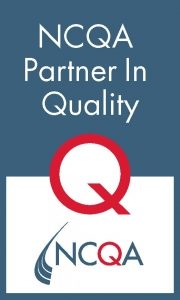Inattention, Hyperactivity, and Executive Functioning Problems
Rating scales, treatment tools, and other resources for supporting youth with executive functioning problems including ADHD.

Screening and Assessment Tools
Vanderbilt ADHD Rating Scale: PDF version of the initial and follow-up parent and teacher scales. For children ages 6-12.
Online Vanderbilt ADHD Rating Scale: Interactive, auto-scoring online version of the parent Vanderbilt ADHD rating scale.
Vanderbilt Parent ADHD Rating Scale in Spanish: Spanish language version of the parent Vanderbilt ADHD Rating Scale.
SNAP-IV ADHD Rating Scale: 18-item ADHD rating scale for teachers and parents, for children ages 6-18. Available in English and Spanish.
Therapy Tools and Patient Handouts
Unstuck and On-Target Parent Resources: Free, parent-facing educational handouts and videos from the Unstuck and On Target executive dysfunction intervention developed at Children’s National for children with ADHD, autism, and/or learning disorders. Covers cognitive inflexibility, emotional dysregulation, and other executive functioning problems. Website also includes free online continuing education credits for elementary educators on the Unstuck curriculum.
Washington State CBT+ Initiative: Extensive online resource of four evidence-based pediatric Cognitive Behavioral Therapy (CBT) interventions, including: CBT for depression; CBT for anxiety; trauma-focused CBT; and Parent Management Training. For patients with ADHD, see the Parent Management Training section.
Worksheet: “Our Plan to Change Behavior: Worksheet for parents on behavior change techniques. From the Washington State CBT+ initiative.
Tucker Turtle Takes Time to Tuck and Think: Free, child-facing video and storybook on the Tucker Turtle emotional regulation technique.
National Center for Pyramid Model Innovations Resource Library: Parent handouts on early childhood behavior management and emotional regulation strategies. Free and available in multiple languages, including Spanish, Hmong, Somali, and Ojibwe.
Treatment and Pharmacology Guides
ADHD – Caring for Children With ADHD: A Practical Resource Toolkit for Clinicians, 3rd Edition: Pediatrician toolkit from the American Academy of Pediatrics.
AACAP ADHD Resource Center: Clinician resources from the American Academy of Child and Adolescent Psychiatry.
Virginia Mental Health Access Program Guide for Promoting Child and Adolescent Behavioral and Mental Health in Primary Care (VMAP Guidebook): The VMAP Guidebook is a compilation of evidence-based practices, up-to-date resources, and practical knowledge specifically geared toward pediatric and adolescent health care providers.
ADHD Care Guide: Care guide for pediatricians from Seattle Children’s Hospital and the Washington Physician Access Line.
Massachusetts CPAC Guidelines and Clinical Pearls: Guidelines and clinical pearls from the Massachusetts Child Psychiatry Access Program.
Florida Best Practice Psychotherapeutic Medication Guide: Algorithms for treating pediatric mental health issues in primary care settings, from The Florida Center for Behavioral Health Improvements and Solutions and the University of South Florida.
Nationwide Children’s ADHD Prescribing Guide: 10-page care guide for pediatric primary care providers for treating patients with ADHD.
ADHD Medication Guide from Cohen Children’s Medical Center and Northwell Health: The ADHD Medication Guide© is a visual aid for professionals caring for individuals with ADHD. The guide includes only medications indicated for the treatment of ADHD by the FDA. In clinical practice, this guide may be used to assist patients in identifying medications previously tried and may allow clinicians to identify ADHD medication options for the future.
Michigan Pediatric and Perinatal Psychopharmacology Cards: Reference cards from the MC3 mental health access program at the University of Michigan.
Billing and Coding
AAP ADHD Coding Fact Sheet for Primary Care Pediatricians: Fact sheet from American Academy of Pediatrics including CPT codes with explanations, examples, and ICD-10 diagnosis codes.
Inattention, Impulsivity, Disruptive Behavior and Aggression Coding Fact Sheet for Primary Care Pediatricians: Fact sheet from AAP including CPT codes with explanations, examples, and ICD-10 diagnosis codes.
Coding for Pediatric and Adolescent Mental Health: Coding guidelines from the Virginia Mental Health Access Program Guidebook (page 37).
National Council for Mental Wellbeing Resources for Financing the Future of Integrated Care: The Decision Support Tool (DST) is designed to help provider organizations sustainably finance integrated care. The DST empowers providers to estimate Medicare and Medicaid revenue across prominent integrated care services to finance these services more effectively in community mental health care, substance use treatment and primary care provider organizations. It includes a list of specific billing codes, service types, professional discipline coverage, documentation and time requirements.
Webinars for Providers
Helping Families Manage ADHD in Primary Care: Resilience Breaks is a series of webinars for Maryland pediatricians from BHIPP.
ADHD, Psychopharmacology: Monthly webinar series for pediatricians from the ACCESS Mental Health Connecticut child mental health access program.
ADHD, ADHD in Pregnancy: Educational webinar series for primary care providers on pediatric and perinatal mental health from the MC3 mental health access program at the University of Michigan.



